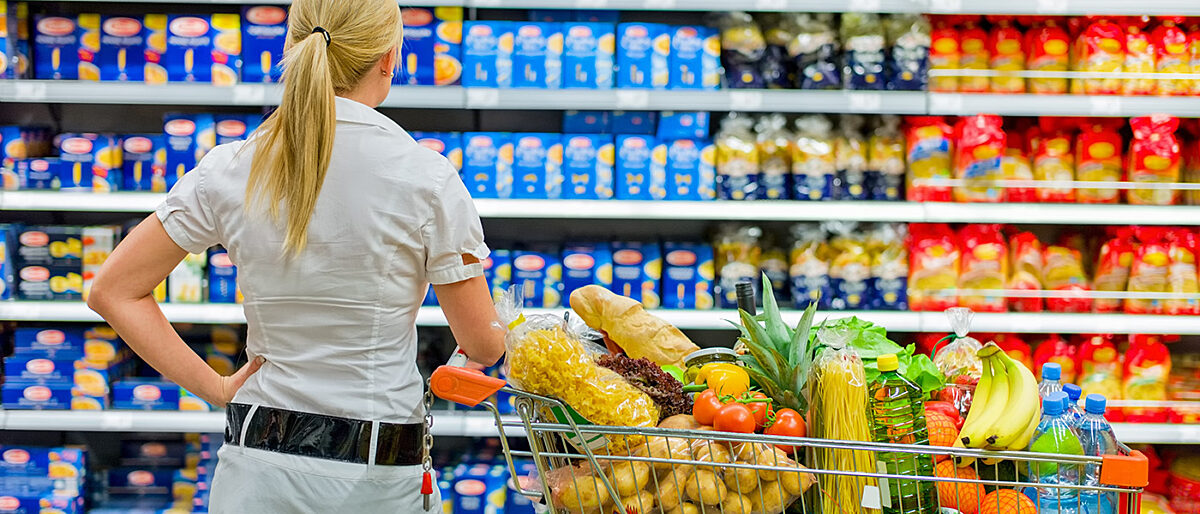
SUCCESS for making sustainable consumption mainstream
Supermarkets and consumers collaborate to make sustainable consumption easy.
“The way we eat and buy food is causing an ecological and health catastrophe”, warned 37 leading scientists from the EAT-Lancet Commission on Food, Planet and Health in 2019. In order to realise the shift towards a future proof food system, a change in food behaviour is expected from consumers. However, a focus on individual responsibility is insufficient. More than two third of consumers in Europe do their grocery shopping in supermarkets. By using their expertise in marketing and redesigning their shopping environment, supermarkets could help consumers shifting to more healthy and sustainable purchase patterns and diets.
According to a recent survey of BEUC, two thirds of European consumers are increasingly becoming aware of the impact of their food choices and are willing to mitigate their environmental and social impact by changing their eating habits. Nevertheless, these ‘good’ intentions don’t necessarily lead to the desirable behavioural change. Choices are highly determined or driven by emotions, routine or triggers integrated in the food environment in shops.
What is needed to make a fundamental shift towards sustainable food consumption? The SUCCESS-project applies a mix of three intertwined strategies, engaging citizens and retailers alike.
A shift through 3 strategies
In this 3-year project, we strive for a shift in food (shopping) behaviour, beyond the individual responsibility of consumers. Business, civil society, and research partners are involved to maximize impact.
Strategy 1: Creating a positive mindset for and increase knowledge about sustainable consumption
The aim of strategy 1 is to carry out consumer-focused communication activities to achieve the following goals:
- Make sustainable consumption attractive and easy by imparting practical knowledge on how to implement sustainable behaviors while shopping.
- Increase their awareness of how retail food environments can support this behavior and highlight existing sustainable food retail initiatives in Belgium, Poland and Finland.
Our project contributes to the development of a state-of-the-art app that facilitates constructive, non-polarising online dialogue. For the first time, this tool will be applied to large scale online discussions on food sustainability. The outcome of this strategy is increased knowledge and willingness among consumers, increased awareness among retailers in facilitating sustainable choices and concrete recommendations on effective communication strategies.
Strategy 2: Engaging ‘imperfect consumers’ to co-create and redesign our food environment in dialogue with food system actors
We aim at activating citizens to become active food agents and invite them to redesign our food environment, making sustainable consumption ‘easy’. Where we fail as consumers, we can succeed as citizens. The engagement activities target different consumer segments (according level of involvement).
Dialogue is crucial in all activities: we want to link consumers with retailers so their input turns into new ideas or encourages retailers to step up their game on sustainable consumption.
The outcome of this strategy is new insights on consumer behaviour, citizens giving signals to retailers and also solutions that be tested by retailers.
- We create an online citizen-driven database of existing sustainable eating initiatives from retailers in Belgium, Poland and Finland. Citizens, retailers and other stakeholders will be asked to contribute to the database with initiatives they are aware of and give feedback. Click to browse the database...
- We roll out an awareness-engagement workshop. Between april and june 2022, 5 workshops will be organised in Belgium in collaboration with 3 large civil society organisations.
- We add a citizen ‘expert’ panel to the running “Superlist” project, a research and campaigning project which provides insights into what supermarkets are doing to make sustainable consumption ‘easy’ for consumers. Citizens will formulate their recommendations and solutions to retailers.
Strategy 3: We stimulate retailers to make the sustainable, choice easier for consumers
We aim at stimulating retailers to adjust their food environment to support sustainable food purchasing, and share experiences of interventions with other retailers in a learning network. We will support interventions, gather evidence of the impact and consumer experience of the actions.
Evidence building through behavioural intervention experiments in supermarkets will be carried out in close collaboration of Ghent University, VTT and retailers. The interventions will feed information to the learning network, to encourage successful actions taken in one country to be tested in other European.
The outcome of this strategy is increased awareness and motivation among retailers and new research insights on food environments. And also consumers experiencing and appreciating the efforts of the retailers.
Video: Shop&Cook workshop with consumers

Video: Project SUCCESS final video

Learn more about the impact of SUCCESS' workshops
Project lead
Related Projects









